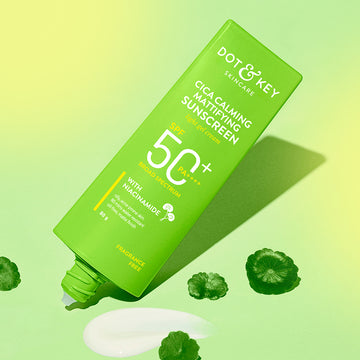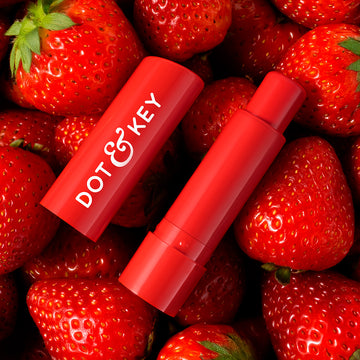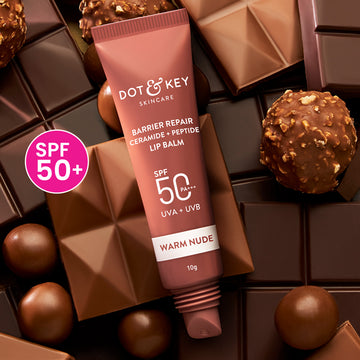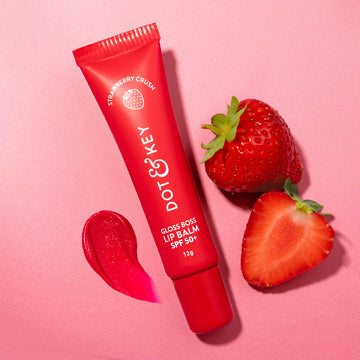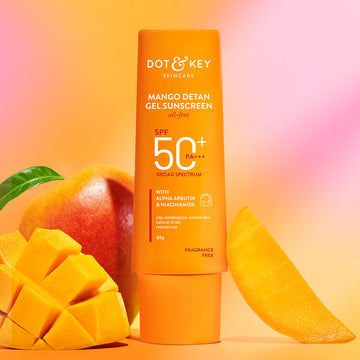Shielding your skin from the sun isn’t just a seasonal or summer essential—it’s a daily must! Every day, our skin is exposed to harmful ultraviolet (UV) rays, environmental pollutants, and even digital blue light—all of which can speed up ageing and cause long-term damage.
Using sunscreen daily creates a protective shield, preventing sunburn, premature ageing, dark spots, and even skin cancer. The right sunscreen not only defends but also nourishes, keeping your skin healthy and glowing.
Including the best sunscreen in your daily skincare routine has profound long-term benefits. It maintains an even skin tone, prevents early signs of ageing like wrinkles and fine lines, and ensures overall skin health by protecting essential proteins like collagen and elastin from breaking down.
Making sunscreen a non-negotiable part of your routine helps maintain an even skin tone, reduces fine lines and wrinkles, and protects essential proteins like collagen and elastin. The best sunscreen or a good sunscreen cream acts as the first line of defence, helping your skin remain youthful, vibrant, and healthy for years to come.
At Dot & Key, we take sun protection to the next level! All our best sunscreens go beyond just shielding your skin—they hydrate, nourish, and strengthen while enhancing your glow.
We craft our sunscreens with safe, clinically effective fruits and cruelty-free ingredients that do more than just prevent UV damage or reduce tan—they promote healthy skin habits, making sun protection fun, fruity, and effortlessly effective!
Understanding Sunscreen: Key Ingredients & Benefits
When picking the right sunscreen, knowing the basics makes all the difference.
SPF (Sun Protection Factor): Measures how well your sunscreen protects against UVB rays (the ones that cause sunburn).
- SPF 30 blocks ~97% of UVB rays
- SPF 50 blocks ~98%
- SPF 60 offers slightly more coverage
PA Ratings (PA+++, PA++++): Indicate protection against UVA rays, which cause premature ageing and skin damage.
UVA rays penetrate deeply into the skin, contributing significantly to ageing signs like wrinkles, while UVB rays primarily affect the skin's outer layer, causing sunburn. A 'Broad Spectrum' sunscreen provides comprehensive protection against both UVA and UVB rays.
Scientifically, Sunscreens work in two ways:
- Chemical Sunscreens absorb UV rays before they can harm your skin.
- Mineral Sunscreens (with Zinc Oxide or Titanium Dioxide) reflect and scatter UV rays away.
Regular reapplication, ideally every two hours, is vital as sunscreen efficacy diminishes over time due to factors like sweating, swimming, or physical contact. Consistent reapplication ensures uninterrupted protection and keeps your skin safe all day.
Why Choose Dot & Key Sunscreens?
Finding the best sunscreen is about more than SPF—it’s about quality and care.
At Dot & Key, our sunscreens are dermatologically tested to ensure they’re safe, effective, and suitable for all skin types, including sensitive skin. This testing guarantees that every formula delivers on its promises without causing irritation or adverse reactions, giving you complete peace of mind.
Our commitment to ethical skincare means all Dot & Key sunscreens proudly carry vegan and cruelty-free certifications. We ensure none of our products or ingredients are tested on animals, adhering strictly to ethical standards and sustainable practices. By selecting the best sunscreen from Dot & Key, you’re supporting responsible beauty practices that care for both your skin and our planet.
Dot & Key’s sunscreen formulations are created without harmful chemicals commonly found in many skincare products. They are free from parabens, phthalates, and sulfates—ingredients that can irritate skin and disrupt its natural balance.
Instead, our sunscreens are infused with Skin-Nourishing Ingredients & clinically effective fruits that protect your skin while enhancing its overall health and appearance. With Dot & Key, sun protection goes beyond defence — it prioritizes your skin’s overall health and safety.
Sunscreen Solutions by Skin Type
Choosing the best sunscreen for your specific skin type ensures optimal protection and maximum comfort. Dot & Key offers specialized sunscreen formulations tailored to meet diverse skincare needs.Sunscreen for Dry Skin
Hydration is key, especially when it comes to dry, flaky skin. Dot & Key sunscreens for dry skin contain nourishing and hydrating ingredients like hyaluronic acid, ceramides and natural humectants. Hyaluronic acid attracts and retains moisture, helping your skin remain hydrated throughout the day whereas ceramides repair damaged skin barrier & fight dryness.
These formulations deliver intense hydration without feeling heavy or sticky, ensuring your skin feels soft, plump, and comfortable while being effectively shielded from harmful UV rays.
Sunscreen for Oily Skin
Dot & Key's oily skin sunscreens are designed with lightweight, non-comedogenic gel or water-light fluid-based formulas. They absorb quickly into the skin without leaving any greasy residue or clogging pores, preventing breakouts and controlling oil.
These sunscreens regulate sebum production and provide a matte or natural finish, ensuring your skin stays protected and comfortably fresh all day.
Sunscreen for Combination Skin
Combination skin requires balance—hydration without heaviness. Dot & Key's combination skin sunscreens deliver lightweight, hydrating yet non-greasy textures that evenly moisturize the skin while controlling oil.
These balanced formulations protect your skin effectively, keeping it comfortable, well-hydrated, and refreshed without causing imbalance or irritation.
Sunscreen for Sensitive Skin
Sensitive skin needs gentle care and robust protection. Dot & Key sunscreens for sensitive skin feature mineral-based active ingredients like Zinc oxide and Titanium dioxide, known for their gentle yet powerful protective abilities.
These fragrance-free, hypoallergenic formulations are specially created to minimize irritation while effectively protecting delicate skin from harmful UV rays. They are ideal for sensitive or reactive skin types, ensuring safety, comfort, and peace of mind.
Dot & Key’s Signature Ingredients in Sunscreens
Dot & Key stands apart in sun care by blending clinically effective fruit backed by science with the best of nature’s bounty. Our best sunscreen formulations feature exclusive natural ingredients such as Blood Orange, Watermelon Cica, Blueberry, Strawberry, Lime, and Mango, carefully chosen to enhance your skin’s health and radiance.
Blood Orange brightens your complexion, reduces pigmentation, and defends your skin from environmental stressors. Cica, known for its calming and healing properties, soothes irritation and inflammation, making it perfect for sensitive and reactive skin. Watermelon gives an instant cooling sensation with a refreshing after-feel.
Our best sunscreen also includes antioxidant-rich extracts like Blueberry and Strawberry, which combat oxidative stress and prevent signs of premature ageing. Citrus fruits such as Lime and tropical ingredients like Mango not only deliver essential vitamins but also energize and revitalize the skin, promoting a healthy, vibrant appearance.
What truly differentiates Dot & Key is our moisture-locking technology. This ensures optimal hydration by effectively sealing moisture into the skin barrier. This advanced approach prevents moisture loss, keeping your skin plump, supple, and hydrated even after prolonged sun exposure.
Unlike conventional sunscreens, the best sunscreens by Dot & Key actively maintain skin hydration, ensuring comfort and efficacy throughout the day.
We also integrate effective actives such as Ceramides, Niacinamide, Hyaluronic Acid, Alpha Arbutin, and Multi-vitamins.
- Ceramides fortify your skin’s natural barrier, enhancing its resilience against environmental damage.
- Niacinamide visibly improves skin texture, reduces redness, and strengthens the skin’s defences.
- Hyaluronic Acid deeply hydrates and replenishes moisture levels, creating smoother, softer skin.
- Alpha Arbutin reduces hyperpigmentation, evens skin-tone & brightens skin.
- Multivitamins deliver comprehensive nourishment, enhancing your skin’s overall health.
Dot & Key’s proprietary best sunscreen formulations provide superior sun defence combined with holistic skincare benefits. Each formula is carefully crafted to protect, nourish, and rejuvenate, ensuring your skin remains healthy, glowing, and resilient—every day.
How to Apply Dot & Key Sunscreen Correctly
To maximize the effectiveness of your Dot & Key sunscreen, proper application is essential. Start by applying sunscreen generously at least 20 minutes before stepping outside. This allows your skin to fully absorb the product and ensures optimal protection against harmful UV rays.
For your face, use approximately a coin-sized amount, ensuring even coverage on your forehead, cheeks, nose, chin, and neck. Don’t forget often neglected areas like the ears and the back of the neck.
Reapplication is key to continuous sun protection. Even the best sunscreens lose their efficacy over time due to sweating, swimming, or physical contact. Therefore, reapply Dot & Key sunscreen every two hours, or immediately after swimming, towel drying, or intense physical activity. Consistent reapplication maintains robust protection and healthy, radiant skin all day.
Dot & Key's Best-Selling Sunscreen Products
Discover Dot & Key’s best-selling sunscreen range, designed to provide exceptional sun protection while nourishing your skin. Here’s a detailed overview of each sunscreen, highlighting their unique features, textures, ingredients, and benefits:
Infused with the powerful antioxidant duo of Vitamin C and Vitamin E, this sunscreen effectively shields your skin from UVA and UVB rays. Its lightweight, non-greasy texture absorbs quickly, leaving behind a natural, glowing finish.
Regular use helps boost glow, reduce pigmentation, and protect against environmental damage, providing visibly radiant skin.
This innovative sunscreen is specially crafted for hydration and cooling. Enriched with refreshing Watermelon Extract and Hyaluronic Acid, it instantly cools your skin & delivers lightweight hydration.
Perfect for oily and combination skin, its lightweight aqua gel texture leaves no white cast, keeping skin fresh, plump, and hydrated throughout the day.
Combining sun protection with a non-oily dewy finish, the Strawberry Dew Tinted Sunscreen is your perfect everyday companion. Infused with Niacinamide & Strawberry Extract, it offers antioxidant benefits, protecting skin from environmental stressors.
Comes in 5 different shades designed especially for Indian Skin tones, Its lightweight, breathable tint provides sheer, light coverage with instant radiance, evening out skin tone and enhancing your natural glow without clogging pores.
2-in-1 Sunscreen + Moisturizer, Dot & Key Barrier Repair Hydrating Sunscreen is specifically formulated to strengthen and repair your skin barrier while offering robust sun protection. Packed with Ceramides, Hyaluronic Acid, and Blueberry, it deeply hydrates and nourishes, restoring your skin's protective barrier.
Its water-cream lightweight texture soothes and hydrates dry, irritated, or sensitive skin, promoting healthy, resilient skin.
Ideal for Oily, Combination & Normal Skin, this oil-free gel sunscreen provides broad-spectrum protection without making skin feel oily. Alpha Arbutin & Mango Extract actively fight tan and hyperpigmentation, brightening skin with every use.
Its ultra-light gel texture absorbs instantly, controlling oil production and leaving skin feeling fresh, matte, and comfortable.
This mattifying sunscreen is uniquely designed for sensitive, oily, and acne-prone skin. Formulated with calming Cica (Centella Asiatica) and Niacinamide, it reduces redness, balances sebum production, and enhances skin clarity.
Its non-comedogenic, mattifying finish ensures comfortable wear, keeping your skin shine-free and protected throughout the day.
Convenient and travel-friendly, the Strawberry Dew Sunscreen Stick makes sun protection effortless, anytime, anywhere. Featuring Niacinamide, Strawberry Extract, Hyaluronic Acid, and nourishing antioxidants, this easy-to-use stick deeply hydrates while providing effective sun protection.
Its smooth, glide-on formula & air-light texture leave no residue or white cast, making it perfect for on-the-go touch-ups.
Specially designed for active lifestyles, Dot & Key’s Swim + Sports Sunscreen provides exceptional water-resistant sun protection. Its 180mins sweat-proof, water-resistant formula ensures prolonged UV protection during outdoor activities like swimming, sports, or intense workouts.
Infused with nourishing ingredients, it helps prevent sunburn, skin damage, and premature ageing, ensuring skin remains protected even under extreme conditions.
Effortlessly protect your entire body with the Watermelon Cooling Body Sunscreen Spray. Enriched with cooling Watermelon Extract and Aloe gel, this sunscreen spray hydrates, refreshes, and cools your skin instantly upon application.
Its lightweight, quick-absorbing mist ensures convenient, even coverage, perfect for daily use or outdoor adventures, keeping your skin comfortably cool and sun-safe.
Dot & Key’s thoughtfully curated sunscreen range ensures you enjoy comprehensive protection, hydration, and skincare benefits in every application, catering specifically to diverse skin needs and lifestyles.
Why Dot & Key Is the Best Choice for Sunscreen
Dot & Key has emerged as a trusted skincare brand, winning the hearts of countless customers through our commitment to safe, effective, and dermatologically approved products. Our sunscreen formulations receive glowing customer reviews highlighting their efficacy, skin-friendly ingredients, and noticeable skincare benefits.
We uphold rigorous standards of safety and sustainability, using ethically sourced, cruelty-free, and toxin-free ingredients that care for your skin and the environment. Our thoughtfully crafted best sunscreen products effortlessly integrate into your daily routine, providing lightweight textures and easy application methods.
Ready to experience superior sun protection and radiant skin? Explore Dot & Key’s extensive range of carefully formulated sunscreens, designed for every skin type and lifestyle.
Make sun protection a daily habit and witness the transformative benefits—healthier, brighter, and beautifully protected skin every day. Protect your skin today for a glowing tomorrow!

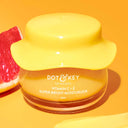

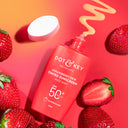
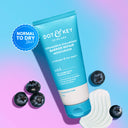

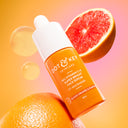
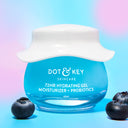
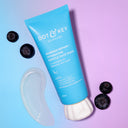


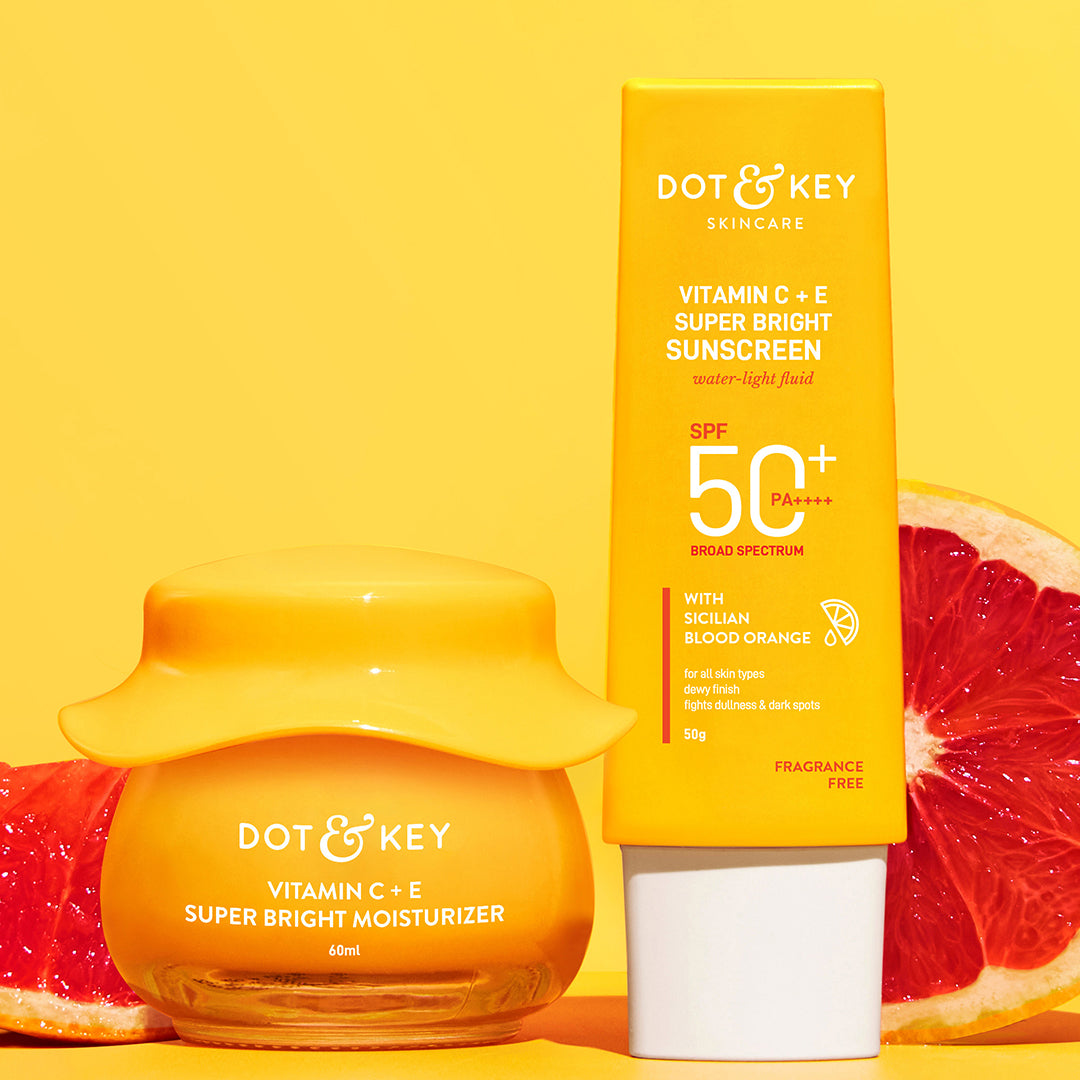




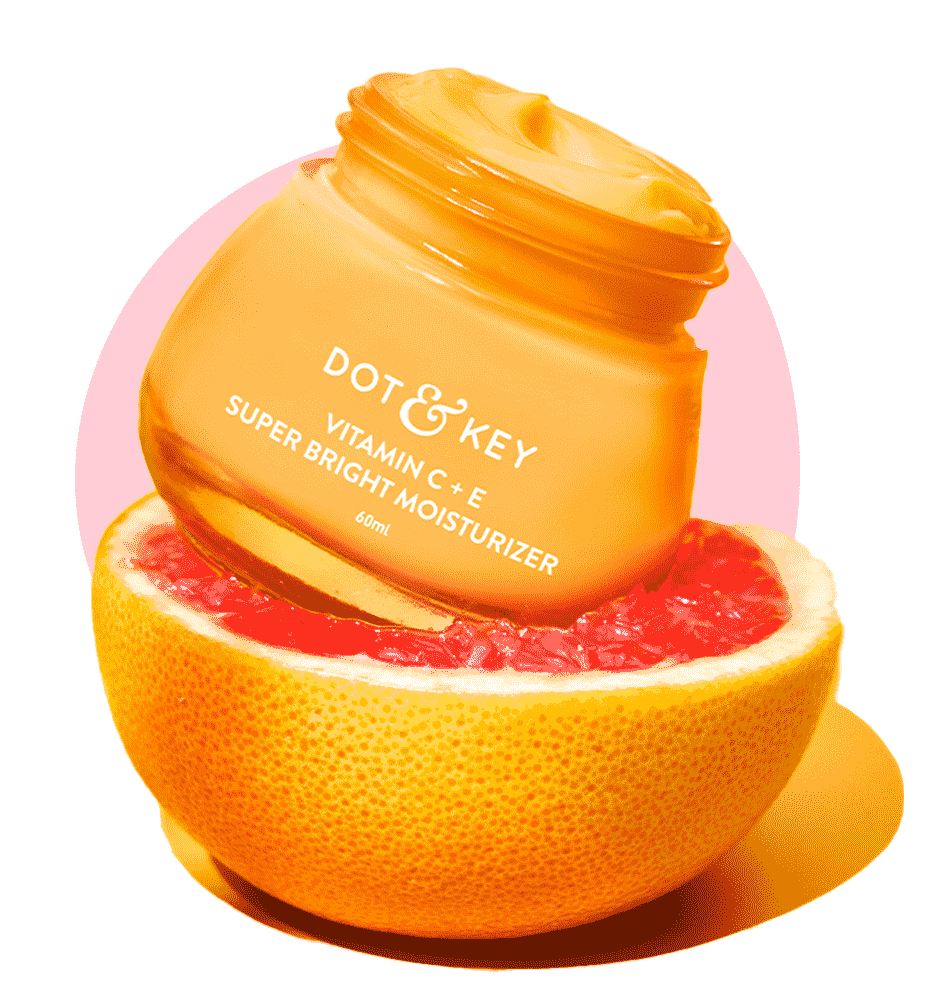

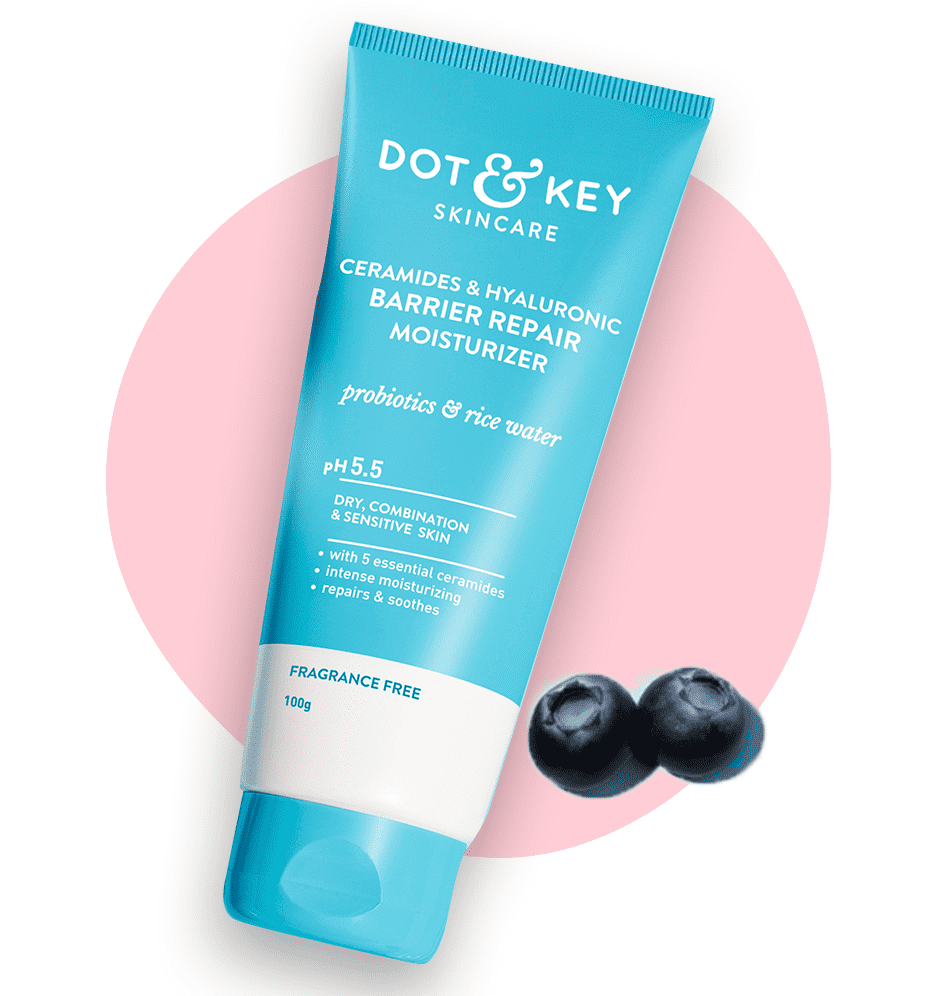













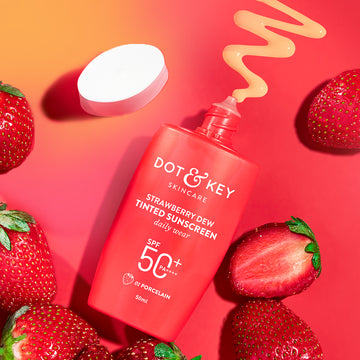
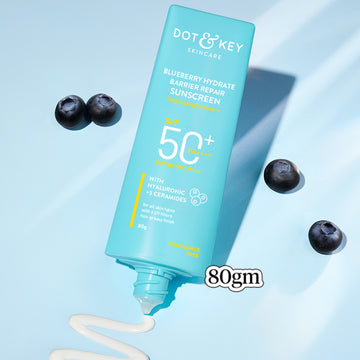
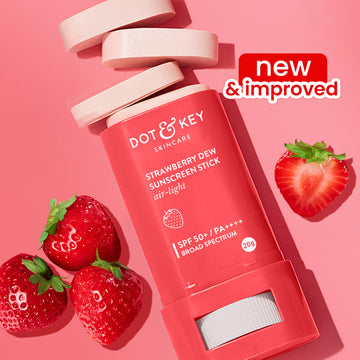




 Dry
Dry